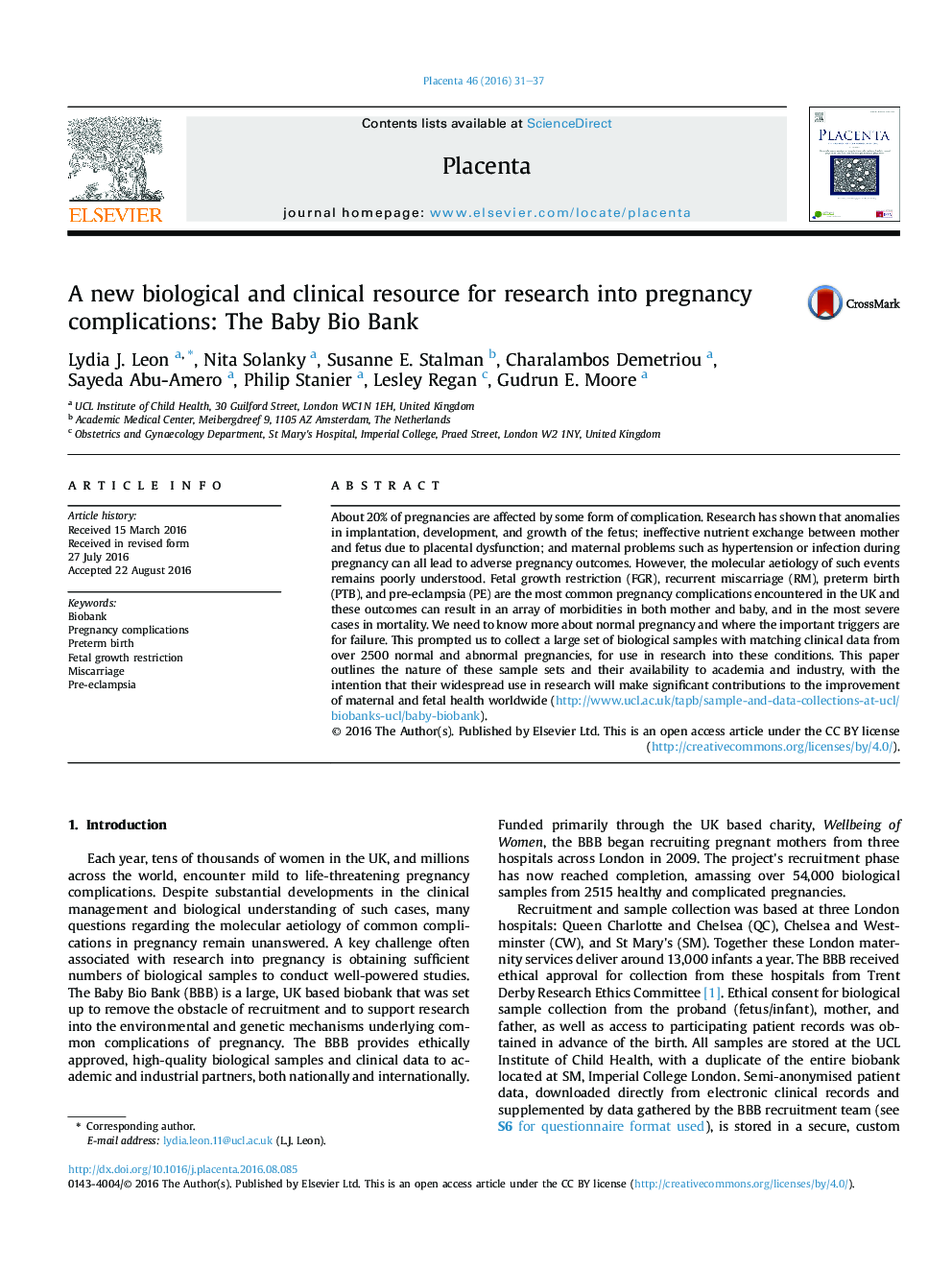| Article ID | Journal | Published Year | Pages | File Type |
|---|---|---|---|---|
| 5894141 | Placenta | 2016 | 7 Pages |
Abstract
About 20% of pregnancies are affected by some form of complication. Research has shown that anomalies in implantation, development, and growth of the fetus; ineffective nutrient exchange between mother and fetus due to placental dysfunction; and maternal problems such as hypertension or infection during pregnancy can all lead to adverse pregnancy outcomes. However, the molecular aetiology of such events remains poorly understood. Fetal growth restriction (FGR), recurrent miscarriage (RM), preterm birth (PTB), and pre-eclampsia (PE) are the most common pregnancy complications encountered in the UK and these outcomes can result in an array of morbidities in both mother and baby, and in the most severe cases in mortality. We need to know more about normal pregnancy and where the important triggers are for failure. This prompted us to collect a large set of biological samples with matching clinical data from over 2500 normal and abnormal pregnancies, for use in research into these conditions. This paper outlines the nature of these sample sets and their availability to academia and industry, with the intention that their widespread use in research will make significant contributions to the improvement of maternal and fetal health worldwide (http://www.ucl.ac.uk/tapb/sample-and-data-collections-at-ucl/biobanks-ucl/baby-biobank).
Keywords
Related Topics
Life Sciences
Biochemistry, Genetics and Molecular Biology
Developmental Biology
Authors
Lydia J. Leon, Nita Solanky, Susanne E. Stalman, Charalambos Demetriou, Sayeda Abu-Amero, Philip Stanier, Lesley Regan, Gudrun E. Moore,
